Akihiko Katayama
Nacimiento : 1926-11-12, Kyoto, Kyoto Prefecture, Japan
Muerte : 2014-11-16
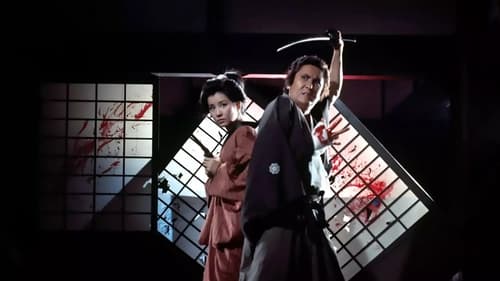
Toranosuke Nakahira
The story of Ryoma Sakamoto, considered to be the architect behind the downfall of the Tokugawa shogunate. He was considered an outlaw by his own clan, hunted by his government, and was despised by supporters of the Shogun as well as the Loyalists for desiring the opening of Japan to the West in order to learn its technology, in the hopes of one day defeating the West with a modern army and navy.

Yasuhara
Horror film directed by Koji Shima.

Katsuya Kitahara

Adaptation of a famous Kyouka Izumi novel. Set in the early 1900's, it tells the story of the impossible love between a young scholar a beautiful geisha.
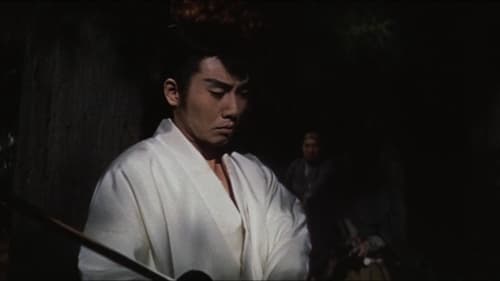
El asesino Tsuke Ryunosuke conoce a una mujer que se parece a su esposa asesinada Hama, y juntos tratar de evitar la venganza que buscan su hermano menor, Utsuki Hyoma de los Shinsengumi. Muchas figuras históricas se encuentran en esta película y supuestamente el carácter de Ryunosuke se basó en una persona de la vida real. Esta es la segunda de la trilogía.
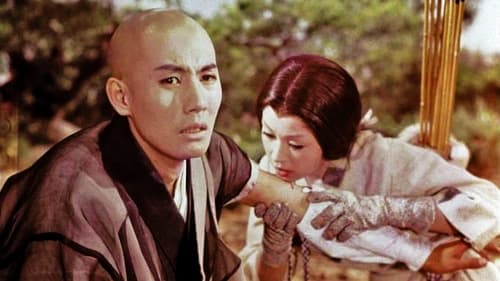
Tomotsuna
Princess Kiyo accidentally injures a local priest, Anchin, while on a hunt. She apologizes, but feels irritated by Anchin’s indifference to her in spite of her beauty. One night, while Anchin is recuperating in a hot spring, he is approached by Kiyo. She tells him that she is in love with him.

Japanese drama

The common-law wife and daughter of a wealthy old man plot to murder him and steal his fortune, with the help of their male acquaintances.

Live-action adaptation of Yoshiro Kato’s manga.

The Nakata family, father, mother, son Hideo, and daughters Taeko and Akiko live in the poorer section of modern Tokyo. Their troubles start when the father leaves with another woman, returns after he is rejected, and leaves again with the family's money.

Japanese film.

In this four part mystery-adventure, detective Kogoro Akechi and the members of the Boy Detectives Club must capture the Bronze Monster, a giant metal monster that steals valuable clocks.

A young man hands in his notice at work and breaks up with his girlfriend in order to pursue his true nature and dream of shaping the world according to his own desires. Against all the odds, he manages to push through his business idea – the foundation of an airline. At the same time, his ex-girlfriend refuses to accept their separation and attempts to force her way back into his life by any means possible. He in turn feels attracted to a young woman, who turns out to be the wife of one of his airline investors and who has herself had a secret lover for several years.

An adaptation of the Kawabata Yasunari short story.

Keisuke Mita
Japanese musical.

Ensign Nishida
The film is about the Yamato's suicide mission to Okinawa in March 1945 to defend the homeland threatened by U.S. bombers. Adapted from Mitsuru Yoshida's 1952 book "Requiem for the Battleship Yamato".

Directorial debut by Umetsugu Inoue, the famous director of Musicals
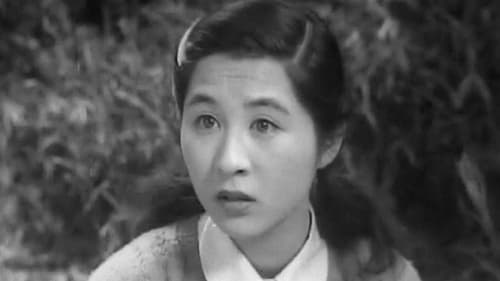
Susumu Fukuhara
'Madre' es la historia de una madre pobre y trabajadora, con un marido enfermo, que se sacrifica para mantener a su familia en los suburbios de Tokio. La película define "Shomin Geki", un género cinematográfico japonés que presenta una representación realista de la clase baja económica, contada con elementos de comedia ligera y melodrama. Esta es la obra más conocida del director Mikio Naruse, aclamado por los historiadores de cine japoneses como un igual a Kurosawa, Ozu y Mizoguchi, pero subestimado en Occidente.

Obscure Japanese movie by director Kyotaro Namiki
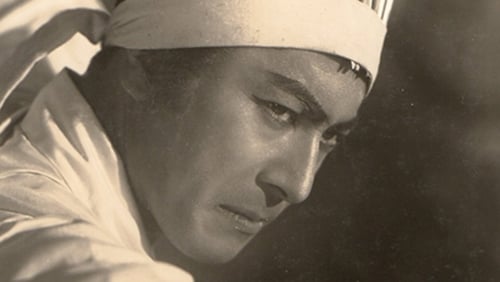
The famous showdown at Kagiya corner has been told many times, but never before with the realism and intensity of this version scripted by Kurosawa Akira and starring Mifune Toshiro as the famed swordsman who must face his best friend as they are forced to take opposite sides in a vendetta caused by the murder of a family member. Told mostly in flashback as the avengers await the arrival of their quarry, this film displays true heroism in the face of fear as most of the combatants, while of the samurai class are not skilled swordsmen. They contrast sharply with the true warriors involved in this battle. Araki Mataemon (Mifune), who was not only a direct student of Yagyu Munenori, but the founder of his own sword style under the Yagyu name is a powerful force ready to assist his brother-in-law against the murderer's allies that include not only another noted sword teacher, but the deadly spear of Katsumi no Hanbei.

Minoru, the eldest son
Japanese drama film.
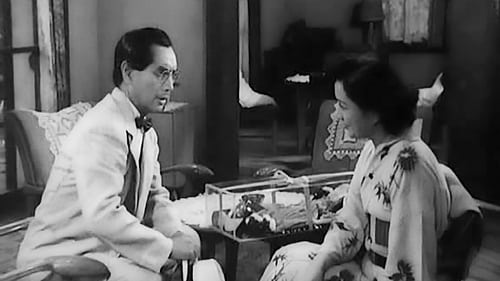
Tsutomu Miyaji
Set in post-war Japan, The Lady of Musashino tells the story of Michiko, a disillusioned young woman trapped in a loveless marriage. She confides in her younger cousin, Tsutomo, and the two become close, but decide not to consummate their affair. He instead becomes involved with the flirtatious Tomiko, who is also conducting an affair with Michiko's husband. When Michiko finds that her husband has abandoned her, she decides to take her fate into her own hands.

Takao
The troubled relationship between a writer and his ballet teacher wife, who has for years loved another man, finally leads to the breakup of the family.

A village struggles to survive when the nearby lake becomes barren of fish.

"Delinquent Girl" - A melodramatic love story, a would-be apprenticeship between the titular “bad girl” and the optimistic scholar returning from the big city.

La hija mayor de los Takamatsu, Atsuko, viuda, vuelve a la casa paterna porque no congenia con su familia política. Por su parte, la hija menor, Yukiko, está enamorada de un profesor mayor que ella y no duda en salir de excursión con él pese al disgusto de su padre. Todo ello, unido a que Yukiko y Atusko se llevan bastante mal, va a sacudir los cimientos de la familia Takamatsu.
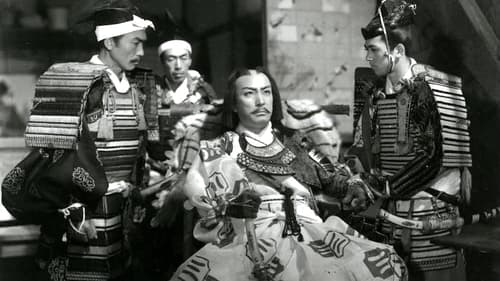
Michitada Kôno
Set in the late thirteenth century, this film depicts the defense of southern Japan led by the Kono clan against the Mongol invasion in 1281.

This film begins with a teacher describing to his students how brave the crew was which died as result of Japan's first submarine accident. The film then follows two of the pupils, one becomes a submarine captain and the other designs submarines.

Saburō Takada transfers from a city to a very small school. The village children suspect that Saburō is actually Matasaburō, the wind sprite.

"Around the time he made such remarkably ambivalent war films as Mud and Soldiers and Five Scouts, Tasaka directed this 'home front' comedy-drama which is too bizarre to be serious propaganda. [The plot revolves around a public contribution campaign to buy airplanes.] The mayor's aviator son promises to fly over the village in salute, and much of the narrative concerns the preparations for this great event. Tasaka throws in a few songs, some village humor and satire, and tremendous camera mobility, finally wringing every possible effect from his climax." John Gillett, British Film Institute

Goichi Aikawa
Tomotaka Tasaka's A Pebble by the Wayside (Robo no Ishi), made in 1938 and taken from a Yuzo Yamamoto novel, takes place around 1902, was about a young boy brought up entirely by his mother since his drunken father is never home. An intelligent teacher wants to send him to middle school, but instead the father apprentices him to a clothing store to which he is in debt. The mother dies and the boy is forced to quit work when his father insults the store owner. Later the boy goes to Tokyo, but only to continue his hardships. First he is forced to do a maid's job at a boarding house and later is used by an old woman to steal at funerals. Finally he is rescued by the teacher, whom he meets in Tokyo.

One of Uchida’s early sound films, Unending Advance is based on a curious story by Yasujiro Ozu, in which an examination of the quotidian problems of a middle-aged salaryman and his family segues into an idyllic dream of an implausible future. The surviving print, although incomplete, offers an essential glimpse into Uchida’s prewar period, when he was associated more with realist dramas than with the period films that dominated his work after the war.




















